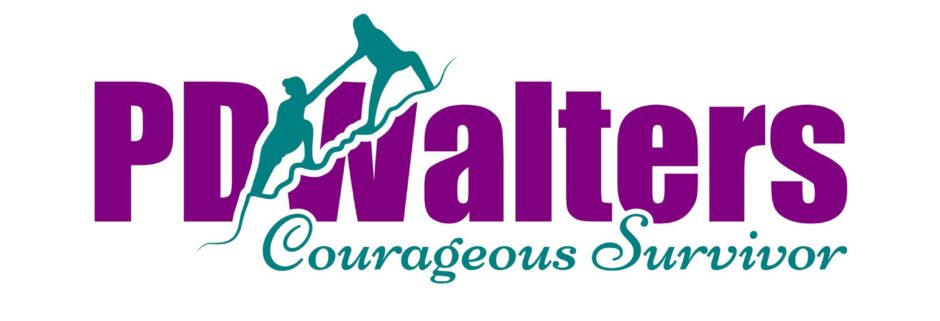Breaking the Chain: Rewiring Your Brain Chemistry After Trauma
Hello, courageous survivors! Today, I want to delve into something incredibly close to my heart—how trauma, especially chronic trauma, impacts our “happy hormones,” and how understanding this can be life-changing.
The Impact of Trauma on Our Feel-Good Chemicals
Our bodies are wonderfully complex, with chemicals like dopamine, oxytocin, serotonin, and endorphins playing crucial roles in our mental and physical well-being. These are often referred to as our “happy hormones” because they help regulate our mood, motivation, pleasure, and overall sense of well-being. But when we’ve endured trauma, particularly over a long period, the production and balance of these chemicals can be seriously disrupted.
I spent nearly five decades living in survival mode, battling addiction, mental health issues, and a slew of physical problems. It wasn’t until I began to understand how trauma had rewired my brain and body that I could start to heal. My journey has been a mix of self-discovery, deep research, and working with a functional neurologist to rewire my brain and autonomic nervous system. This journey has taught me that while I am not a doctor, I am an expert in my own experience—and that experience might just resonate with you.
Dopamine: The Motivation and Reward Chemical
Dopamine is the chemical responsible for motivation, pleasure, and reward. It’s essential for learning, focus, and goal setting. However, when dopamine levels are low, it can lead to issues like low self-esteem, procrastination, lack of motivation, fatigue, anxiety, and mood swings. For years, I struggled with these exact symptoms. I was stuck in a cycle of unfulfilled potential, constantly battling to find any joy in life.
One of the key steps in my recovery has been learning how to boost dopamine naturally. I started by changing my lifestyle—incorporating regular exercise, setting small weekly goals, and making dietary changes. Cold showers, stretching, gardening, and spending time with my dogs have all become part of my daily routine. These activities help regulate my dopamine levels, allowing me to reclaim my motivation and joy.
Endorphins: The Body’s Natural Painkillers
Endorphins are our body’s natural painkillers. They help us manage stress and promote a sense of well-being. Trauma can lower endorphin levels, making it harder to cope with stress and pain. For years, I suffered from chronic pain and was diagnosed with various autoimmune conditions. But by boosting my endorphins through exercise, diet, and other holistic practices, I’ve been able to significantly reduce my pain and increase my overall happiness.
Oxytocin: The Love and Connection Hormone
Oxytocin, often called the love hormone, plays a vital role in emotional connection and bonding. For those of us who have experienced trauma, especially in childhood, oxytocin levels can be severely disrupted, making it difficult to form and maintain relationships. I’ve spent much of my life wired for protection instead of connection, a pattern that began in childhood and was reinforced by trauma.
One of the most profound shifts in my healing journey has been rewiring my brain for connection rather than protection. My dogs have played a huge role in this—they offer unconditional love, and spending time with them has helped me boost my oxytocin levels naturally. Simple acts like cuddling, hugging, and spending quality time with loved ones can also help increase oxytocin and rebuild trust and empathy.
Serotonin: The Mood Stabilizer
Serotonin is crucial for mood regulation and overall emotional stability. Trauma can decrease serotonin levels, leading to mood swings, anxiety, depression, and sleep disturbances. I used to live in a state of constant unease, always on guard, unable to relax or enjoy life. But I’ve learned that exposure to sunlight, regular exercise, a healthy diet, and practicing gratitude can naturally boost serotonin levels.
These changes have transformed my life. I no longer feel like I’m just surviving—I’m thriving. My mood is more stable, I have more energy, and I can genuinely enjoy the simple pleasures in life.
The Journey Toward Healing
Understanding and balancing these four key brain chemicals has been a critical part of my healing journey. I believe that many of the mental health crises we see today are rooted in unresolved, undiagnosed, and unrecognized trauma. By sharing my experiences and the steps I’ve taken to heal, I hope to inspire others to take control of their own mental and physical health.
This week on my social media, I’ll be diving deeper into these chemicals and discussing natural ways to boost them. I encourage you to explore these topics further and see how they resonate with you. Let’s start breaking the chain of trauma together.
If you found this post helpful, please share your thoughts and experiences in the comments below. And don’t forget to check out my upcoming podcast episode, where we’ll discuss cortisol, adrenaline, and noradrenaline—three more chemicals that play a huge role in how trauma impacts our lives.
Thank you for being here and for taking the time to invest in your own healing journey. Remember, you are not alone, and there is hope.
